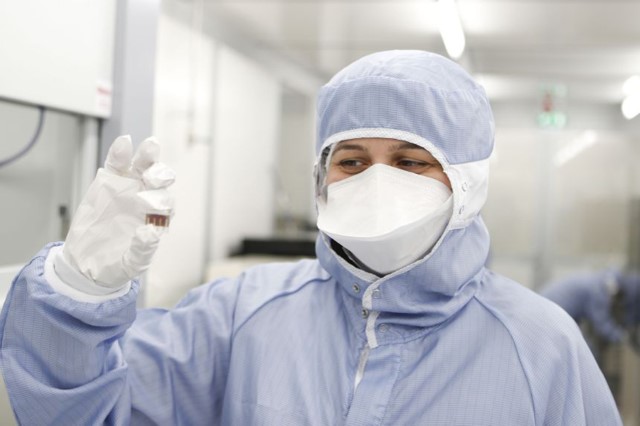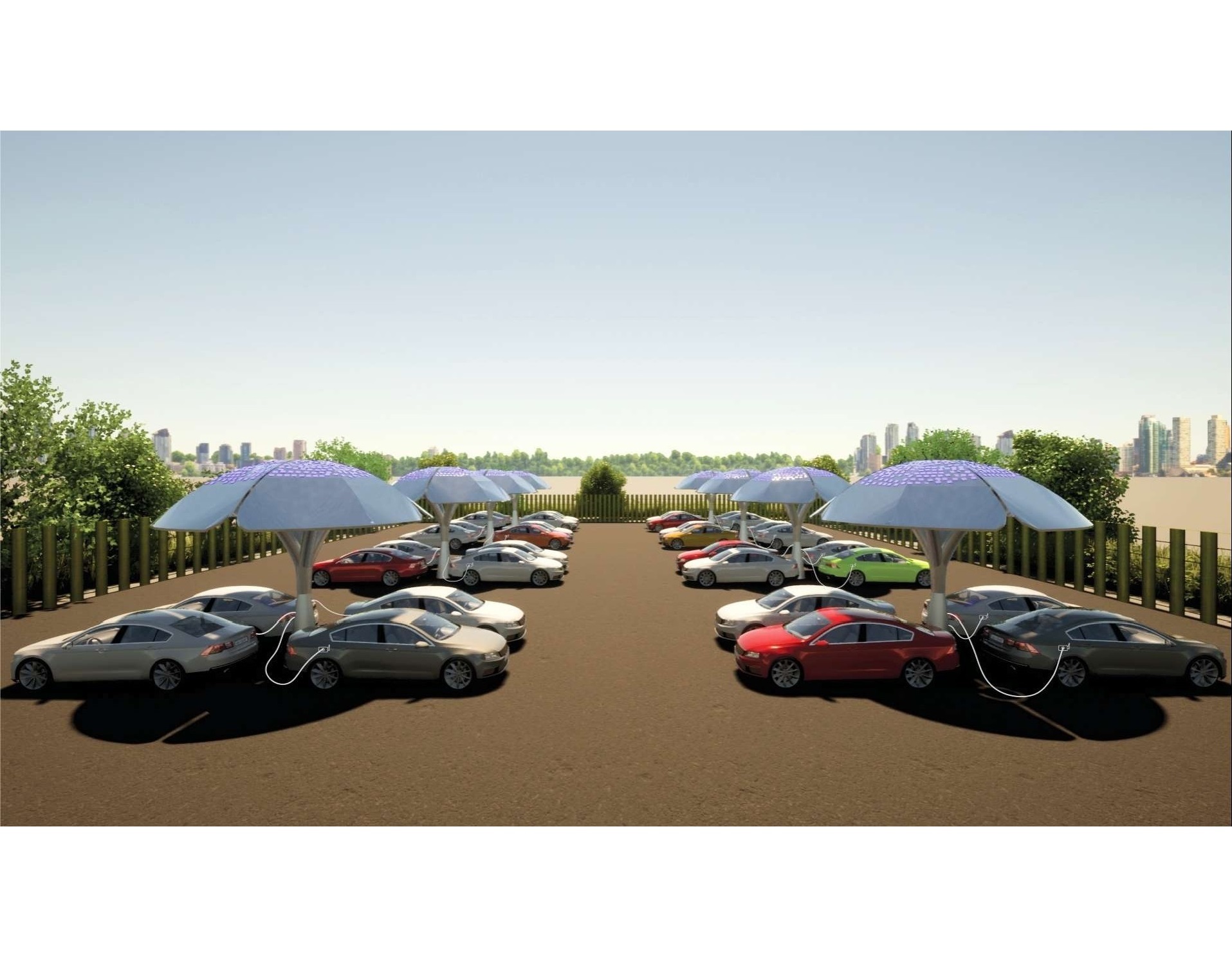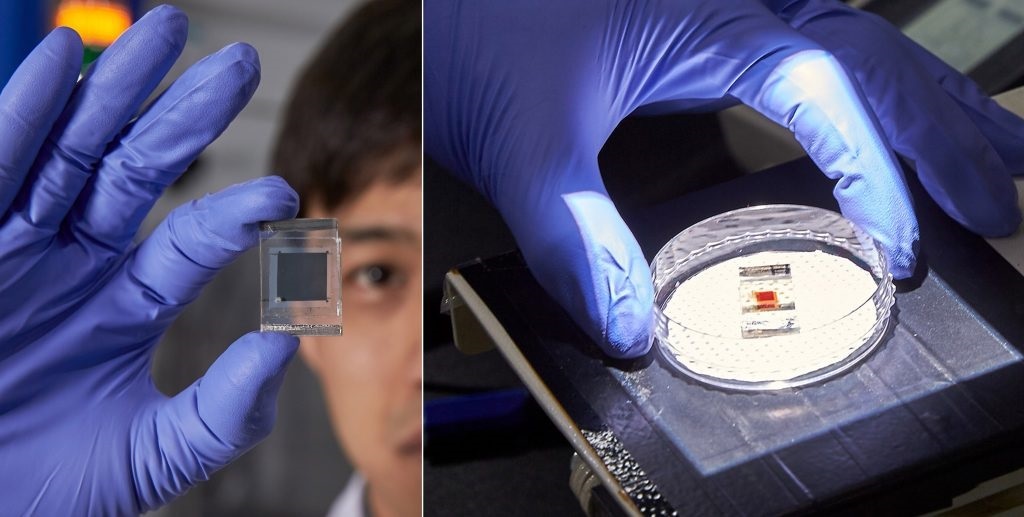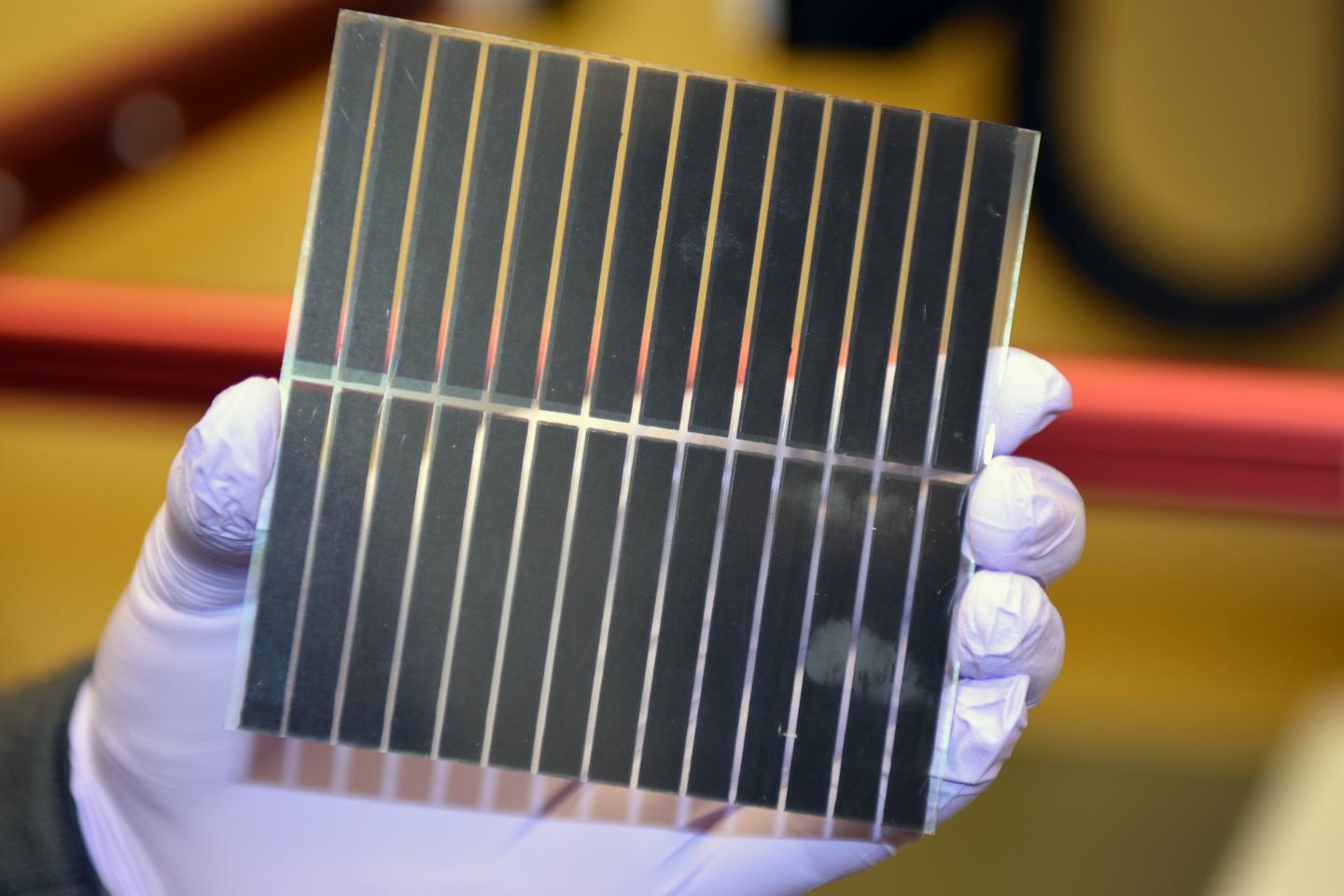29.05.2018
Solar cells based on perovskite materials are efficient, lightweight, flexible and much cheaper to produce than silicon cells. With stability still being an issue, researchers involved in the new SolarWAVE project are pursuing a breakthrough to develop highly durable perovskite solar cells, which even hold promise of transforming the Internet of Things.
Due to their exceptional properties, perovskite solar cells (PSCs) have great potential to dominate the global photovoltaic market. The efficiency of PSCs has improved tremendously in recent years, but they still suffer one major limitation: moisture and humidity can dramatically affect their overall stability.
Researchers at Tampere University of Technology (TUT) are participating in the new SolarWAVE project that is seeking a breakthrough in the stability of PSCs. They are developing next-generation printable and water-stable PSCs with a lifespan of more than 10 years.
"We aim to achieve this ambitious goal by passivating the perovskite surface with novel organic and inorganic materials and employing the supramolecular halogen-bonding concept," says coordinator of SolarWAVE, Senior Research Fellow Paola Vivo of the Laboratory of Chemistry and Bioengineering at TUT.
Paola Vivo has a long-standing research interest in perovskite solar cells. She is currently leading the PSC research of TUT's team within the ASPIRE project. The SolarWAVE project also involves other researchers from the Smart Photonic Materials Group at TUT.
"Our ultimate goal is to integrate ultra-stable PSCs into flexible smart tags for communication and data processing within the Internet of Things (IoT). This could dramatically change the way IoT is implemented around us," says Paola Vivo.
The Finno-German research consortium represents a unique blend of academic and industrial expertise and has access to state-of-the-art research equipment.
"SolarWAVE also offers our University an excellent opportunity to develop photovoltaic technology in collaboration with world-leading PSC researchers at Helmholtz-Zentrum Berlin (HZB) and thereby boost our competitiveness and visibility in this vibrant field," says Vivo.
Funded by Business Finland and Forschungszentrum Jülich GmbH, the project titled 'Waterproof Perovskite Solar Cells' (SolarWAVE) is a collaborative effort between researchers from TUT and HZB. The main industrial partner in Finland is Confidex Oy, a global supplier of wireless identification products and solutions for business-critical processes. Ruukki Construction Oy and KONE Oy are also participating in SolarWAVE. The three-year bilateral project was launched in May 2018 and has an overall budget of close to 600,000 euros.













